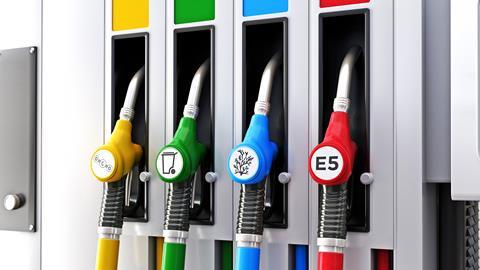Plastics have become an integral part of our daily lives. From packaging and containers to clothing and electronics, plastics are ubiquitous in the modern world. However, the increasing production and consumption of plastics have led to a mounting plastic waste problem across the globe. According to estimates, over 300 million metric tons of plastic waste is generated annually, with only a fraction being recycled.The rest ends up polluting land and water bodies, harming wildlife and ecosystems. To address the growing plastic pollution crisis, it is imperative that we promote sustainable plastic management through increased plastic recycling and use of recycled plastics.
Issues with Plastic Waste
Plastic does not biodegrade easily and can persist in the environment for hundreds of years. When plastic litter ends up in landfills or natural areas, toxic chemicals can leach out and contaminate soil and water sources. Plastic debris, when it makes its way into rivers and oceans, poses a serious threat to marine life. Studies show that over 800 animal species are impacted by ingesting or getting entangled in plastic waste. The Great Pacific Garbage Patch, massive gyres of marine plastic pollution floating in the oceans, aptly demonstrates the severity of the plastic waste problem. Plastic pollution is not just an environmental issue – it also presents economic challenges. The environmental damage and impacts on fisheries, tourism and shipping industries due to plastic litter costs billions of dollars annually across the world. Unsustainable plastic waste management practices exacerbate the issue, contributing to growing landfills and worsening environmental impacts.
Benefits of Recycled Plastics
Recycling used plastics offers a viable solution to reduce dependency on virgin plastics and plastic waste landfilling. Recycled plastics are plastic materials that are recovered, reprocessed and reused as raw materials for new plastic products. This prevents valuable plastic resources from ending up as waste. Recycling used plastics delivers significant environmental benefits – it reduces demand for non-renewable fossil fuels used in plastic production and helps lower greenhouse gas emissions. One metric ton of recycled plastic saves around 2.8 cubic meters of landfill space and between 1.3 to 2.8 barrels of oil equivalents in energy savings. Recycled plastics are eco-friendly alternatives to virgin plastics as their production requires lesser energy. Manufacturers also find recycled plastics as a lower-cost substitute for virgin plastics. Increased use of recycled plastics boosts economic activity and job creation in the growing circular plastics economy.
Recycling Processes and Technologies
There are various recycling processes to recover plastic materials from post-consumer or post-industrial plastic waste streams. Mechanical recycling, the most common process, involves collecting, sorting and cleaning used plastic items followed by shredding and melting them to form plastic flakes. These plastic flakes are further processed to make recycled plastic pellets or molded into new products. Chemical recycling, also known as plastic-to-plastic recycling, chemically breaks down plastics into their basic chemical building blocks called monomers. These monomers help manufacture new polymers and plastic products. However, chemical recycling is still an emerging technology and needs scaling up. Other innovative recycling processes being researched are glycolysis, hydrolysis, pyrolysis and solvent-based recycling to efficiently recycle different types of plastics. Technology advances like robotics-assisted sorting, infrared identification and blockchain are enhancing the quality and traceability of recycled plastic output. These processes and emerging technologies are crucial for diverting plastic waste from landfills and expanding circular plastic economies globally.
Encouraging Plastic Recycling Initiatives
Concerted efforts are ongoing across the world to scale up plastic recycling and divert plastic waste from becoming pollution. Countries like Germany, Japan and South Korea have demonstrated strong plastic recycling rates of over 50% due to well-established recycling infrastructure, awareness programs and landfill bans on certain plastics. Municipal recycling programs that provide curbside collection of plastic bottles, containers as well as deposit-refund schemes financial incentives encourage consumers to participate actively in recycling. Brand owners and retailers are implementing plastic reduction policies and utilizing recycled content in new product packaging. Plastic product manufacturers find uses for recycled plastics in applications like patio furniture, linoleum flooring and carpets. Regulatory measures like extended producer responsibility and plastic bans further drive innovation in recycled plastics. Regional initiatives to setup large-scale plastic recycling plants and build domestic can boost circular plastic economies especially in developing countries facing plastic waste challenges. Widespread public participation through anti-litter campaigns, community-driven cleanups and plastic waste segregation at source is also key to change behaviors and divert plastic waste from landfills. With coordinated multi-stakeholder efforts, recycling rates for plastics can significantly rise to tackle the global scourge of plastic pollution.
Sustainability Through Recycled Plastics
To establish a truly sustainable plastic materials management system worldwide, we need urgent transformative changes in how plastics are produced, consumed and recycled. Transitioning to more recycled plastics presents a compelling opportunity to address both environmental and economic challenges posed by plastic waste problem. Greater use of recycled plastics in packaging and other applications will create new green jobs while also reducing dependence on fossil fuels. With continual technology advancements complemented by policy interventions, plastic recycling processes can achieve higher yields to upgrade to a circular plastic economy model. Industry, governments and public will need to work together to build extensive recycling infrastructure, promote designs that facilitate recyclability and set ambitious recycling targets. Sustained awareness campaigns on responsible plastic disposal and recycling habits among masses are also crucial. By diverting plastics towards recycling channels on war footing, we can drastically reduce ocean and land plastic pollution. Recycled plastics provide the means to harness existing plastic resources more sustainably for future generations. With a circular approach, plastics can truly be a keystone of sustainability.
*Note:
1. Source: Coherent Market Insights, Public sources, Desk research
2. We have leveraged AI tools to mine information and compile it




